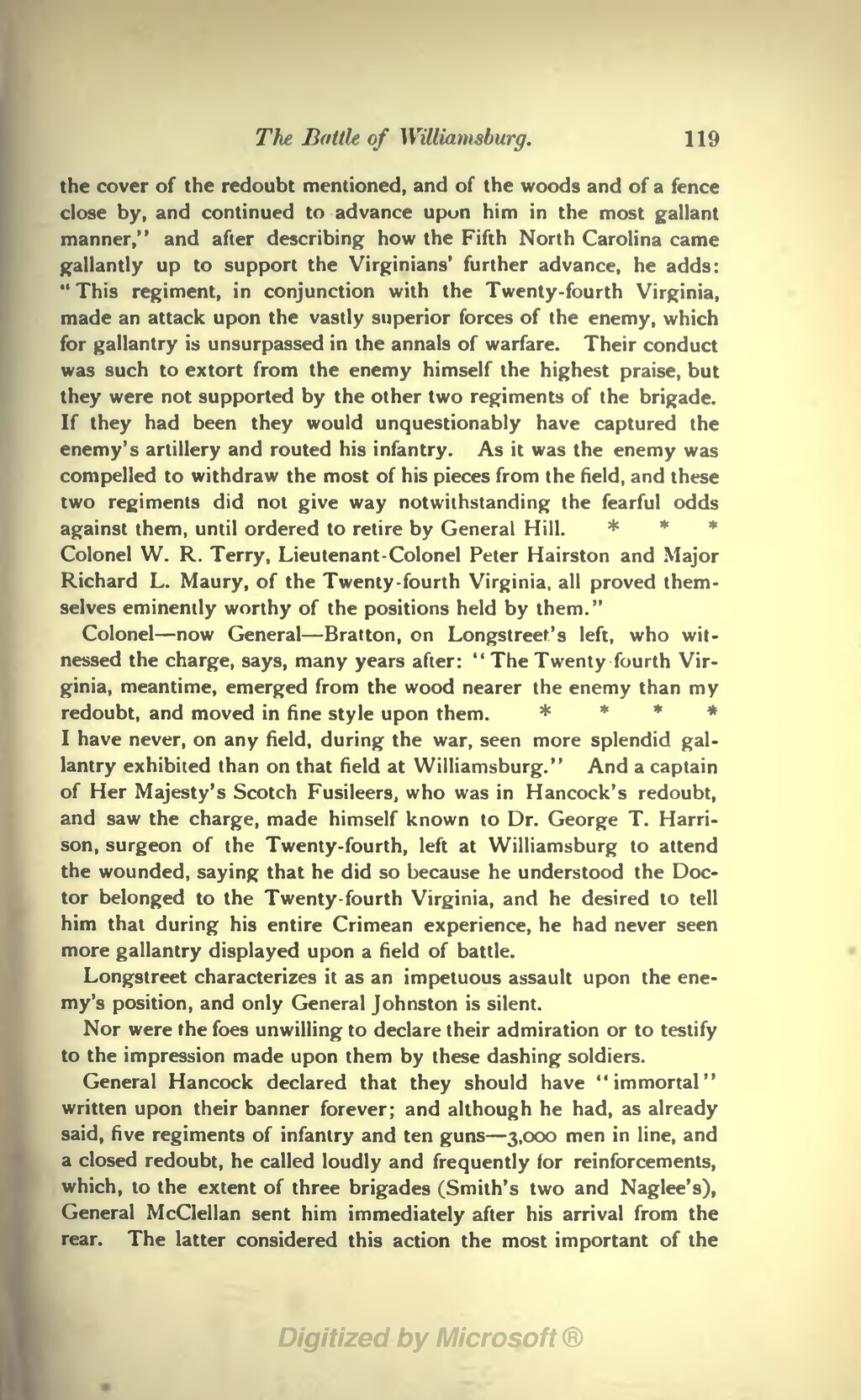The Battle of Williamsburg. 119
the cover of the redoubt mentioned, and of the woods and of a fence close by, and continued to advance upon him in the most gallant manner," and after describing how the Fifth North Carolina came gallantly up to support the Virginians' further advance, he adds: " This regiment, in conjunction with the Twenty-fourth Virginia, made an attack upon the vastly superior forces of the enemy, which for gallantry is unsurpassed in the annals of warfare. Their conduct was such to extort from the enemy himself the highest praise, but they were not supported by the other two regiments of the brigade. If they had been they would unquestionably have captured the enemy's artillery and routed his infantry. As it was the enemy was compelled to withdraw the most of his pieces from the field, and these two regiments did not give way notwithstanding the fearful odds against them, until ordered to retire by General Hill. Colonel W. R. Terry, Lieutenant-Colonel Peter Hairston and Major Richard L. Maury, of the Twenty-fourth Virginia, all proved them- selves eminently worthy of the positions held by them."
Colonel now General Bratton, on Longstreet's left, who wit- nessed the charge, says, many years after: " The Twenty fourth Vir- ginia, meantime, emerged from the wood nearer the enemy than my redoubt, and moved in fine style upon them. *
I have never, on any field, during the war, seen more splendid gal- lantry exhibited than on that field at Williamsburg." And a captain of Her Majesty's Scotch Fusileers, who was in Hancock's redoubt, and saw the charge, made himself known to Dr. George T. Harri- son, surgeon of the Twenty-fourth, left at Williamsburg to attend the wounded, saying that he did so because he understood the Doc- tor belonged to the Twenty-fourth Virginia, and he desired to tell him that during his entire Crimean experience, he had never seen more gallantry displayed upon a field of battle.
Longstreet characterizes it as an impetuous assault upon the ene- my's position, and only General Johnston is silent.
Nor were the foes unwilling to declare their admiration or to testify to the impression made upon them by these dashing soldiers.
General Hancock declared that they should have "immortal" written upon their banner forever; and although he had, as already said, five regiments of infantry and ten guns 3,000 men in line, and a closed redoubt, he called loudly and frequently for reinforcements, which, to the extent of three brigades (Smith's two and Naglee's), General McClellan sent him immediately after his arrival from the rear. The latter considered this action the most important of the
